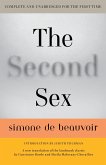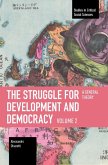If social, political, and material transformation is to have a lasting impact on individuals and society, it must be integrated within ordinary experience. Refiguring the Ordinary examines the ways in which individuals' bodies, habits, environments, and abilities function as horizons that underpin their understandings of the ordinary. These features of experience, according to Gail Weiss, are never neutral, but are always affected by gender, race, social class, ethnicity, nationality, and perceptions of bodily normality. While no two people will experience the ordinary in exactly the same way, the multiplicities, possibilities, overlaps, and limitations of day-to-day horizons are always intersubjectively constituted. Weiss turns her attention to changing the conditions and experiences of oppression from ordinary to extraordinary. This book is an impressive phenomenological, feminist reading of the complexities of human experience.M. V. Marder, University of Toronto, Feb. 2009
Hinweis: Dieser Artikel kann nur an eine deutsche Lieferadresse ausgeliefert werden.
Hinweis: Dieser Artikel kann nur an eine deutsche Lieferadresse ausgeliefert werden.








